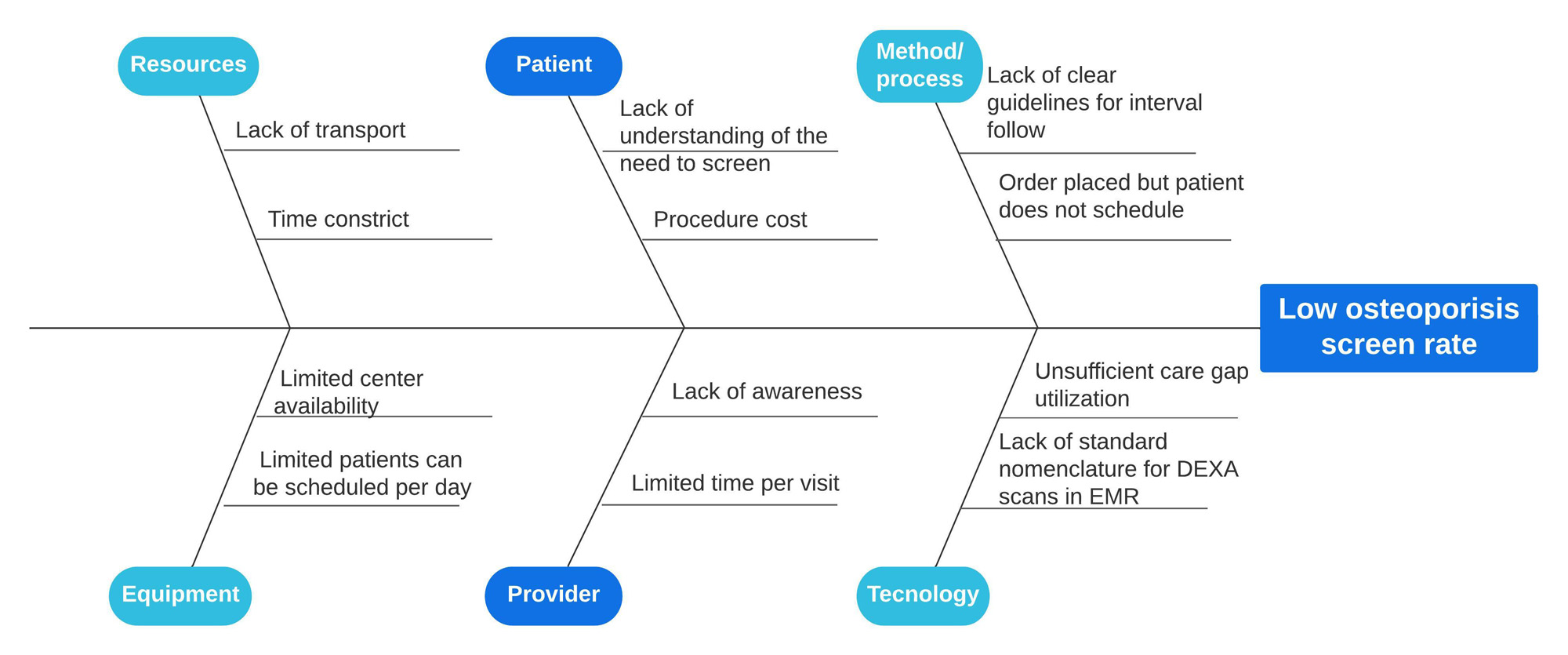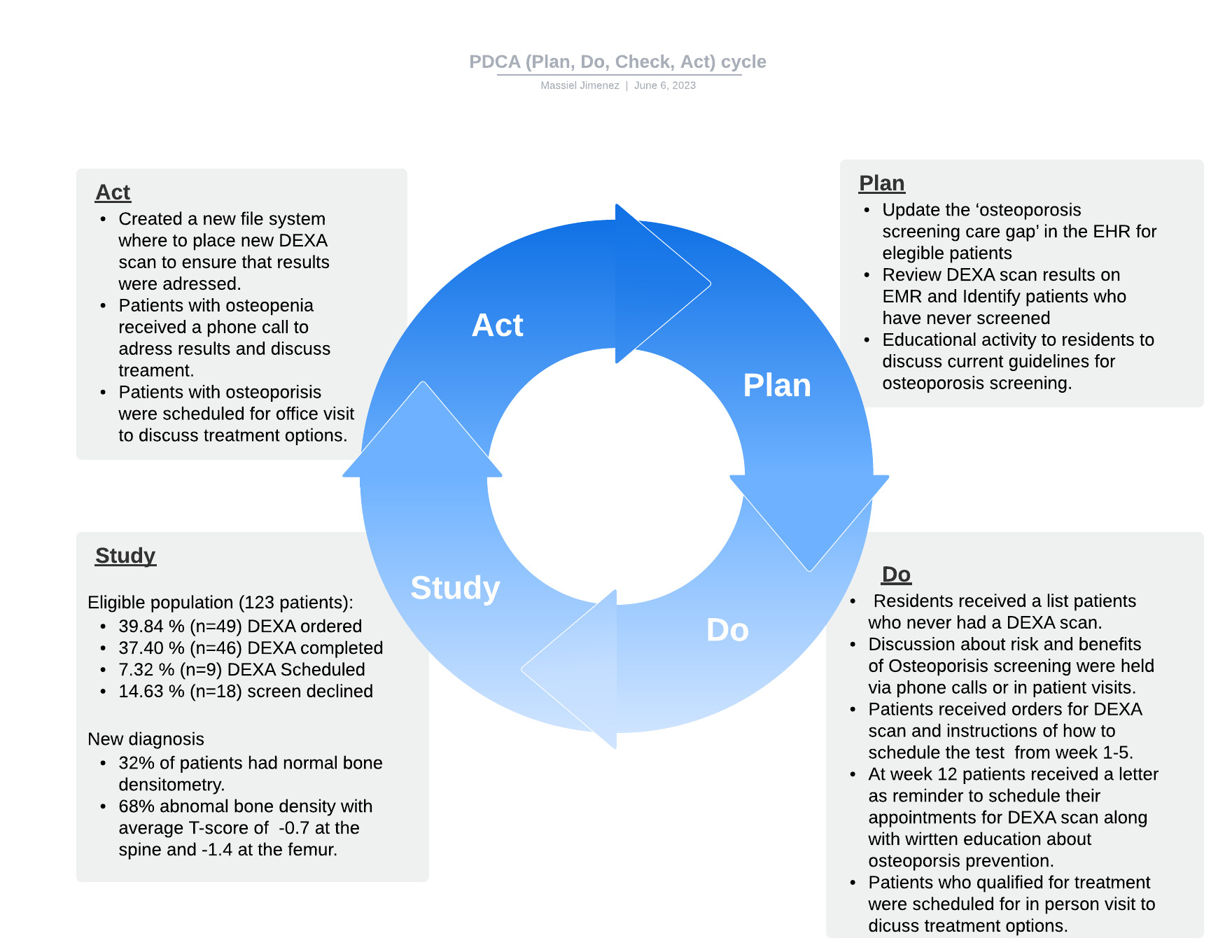Session Information
Date: Tuesday, November 14, 2023
Title: (1996–2018) Osteoporosis & Metabolic Bone Disease – Basic & Clinical Science Poster
Session Type: Poster Session C
Session Time: 9:00AM-11:00AM
Background/Purpose: Osteoporotic fractures, especially hip fractures, are associated with significant morbidity, including limitations in ambulation, disability, and decreased quality of life. The aim of this quality improvement project was to increase the percentage of woman aged 65 or older screened for Osteoporosis in a resident-led primary care clinic and subsequently identify a population that would benefit from treatment to reduce the risk of fragility fracture.
Methods: Per the U.S. Preventive Services Task Force (USPSTF) osteoporosis screening guidelines, all female patients aged 65 or above followed by the resident primary care clinic who had not yet received osteoporosis screening by December 31st, 2022, were included. A list of eligible patients was generated through the Electronic Health Record (EHR) using patient’s age, sex, and primary care physician location. A team of residents and faculty along with the associate director of quality identified possible barriers that limited the osteoporosis screening in a fishbone diagram (figure 1). A package of interventions, based on a Pareto analysis of factors in the fishbone, were prepared, completed, and analyzed through a Plan-Do-Study-Act cycle (figure 2).
Results: For the eligible group of patients (n=123), the risks and benefits of screening for osteoporosis with DEXA scan were discussed via phone call or during in person office visits. At week 12, the patients who were unable to be reached despite multiple attempts received a letter from the office with educational material about fragility fractures and benefits of undergoing osteoporosis screening. In 4 months, 37.40 % (n=46) of identified patients had their DEXA scan completed and 7.32 % (n=9) were scheduled for the upcoming weeks. 39.84% (n=49) of patients had a DEXA scan ordered without a documented scheduled date. 14.63% (n=18) of patient declined DEXA scan. The most common reason for declining screening was reluctance to start treatment. Out of the 46 patients who completed the initial screening, 68% were diagnosed with abnormal bone mass, of which 32% met osteoporosis criteria. At the 4-month mark, the overall rate of screening for all females aged 65 or older in our clinic increased from 75 to 85% and is expected to continue to improve in the upcoming months.
Conclusion: The use of osteoporosis screening reminder in the EHR along with continued provider and patient education resulted in a 10% increase over 4 months in the osteoporosis screening rate in a resident clinic.
To cite this abstract in AMA style:
Jimenez Artiles M, Subedi R, Wang Q, Jahshan B, Gadir K, Quwatli W. Improvement of Care: Osteoporosis Screening in a Resident-led Primary Care Clinic [abstract]. Arthritis Rheumatol. 2023; 75 (suppl 9). https://acrabstracts.org/abstract/improvement-of-care-osteoporosis-screening-in-a-resident-led-primary-care-clinic/. Accessed .« Back to ACR Convergence 2023
ACR Meeting Abstracts - https://acrabstracts.org/abstract/improvement-of-care-osteoporosis-screening-in-a-resident-led-primary-care-clinic/


